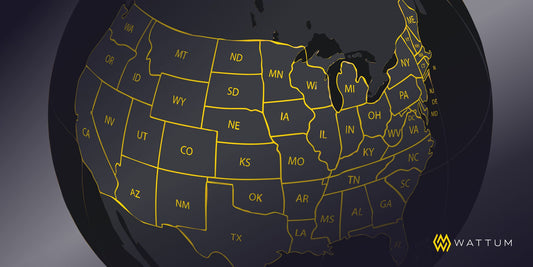The three-way relationship between China, Russia, and the United States is one well known throughout history. With terminology along the lines of “Cold War 2.0” springing up as recently as 2021, this power triangle continues to offer its fair share of developments and influence.
While no such wars have been recently waged, and the relations between these three countries see stability, new economic developments may see significant effects to the US’s status as the world’s reserve currency.
In light of the massive growth of Bitcoin and the cryptocurrency market in the last year (let alone the last ten) people around the world have begun to reevaluate the way they think about money, value, and independence. On the flipside of this digital coin, many also criticize cryptocurrency and debunk its legitimacy with arguments pertaining to stability, longevity, and, believe it or not, whether or not it's even real. This latter point stems from a general lack of knowledge when it comes to the evolving crypto market, partly due to the fact that there hasn’t ever been anything quite like it.
US World Reserve Currency Status Relies on You
The US dollar has been a world reserve currency for 77 years, but it’s not the only one. In addition to USD, the euro, British pound sterling, Japanese yen, and Chinese yuan were approved by the International Monetary Fund (IMF) in October 2016.
The United States, China, and Russia remain three of the most influential countries in the world, and their history as a triangle remains relevant in that same capacity. Should Russia or China decide to cease use of the US dollar and stop accepting it, the implications would be colossal. Considering the presence of these two countries on both the European and Asian continents, it’s a short stretch for the Middle East to follow suit. Major European countries would thus be forced to accept such a turn, leaving the US with its own dollars to be supported by its own citizens. The dollar itself is supported, and relies on, the productivity of American workers, in the context of them using it almost exclusively.
That’s the kicker: Americans are not exclusively using nor relying on the American dollar, at least not anymore. Adoption rates of Bitcoin and cryptocurrencies have soared over 880% in the last year alone, with more than 40 million Americans owning a share of Bitcoin, an approximate 22% of the adult population.

Crypto Investments have Quadrupled in Less Than 3 Years
Crypto attracted more money from investors in 2021 than all previous years combined: a record $30 billion, $7.2 billion of which came from US-based investors. This impressive sum is nearly 4 times more than the previous investment high in 2018, sitting at $8 billion.
With an evident increase in not only the popularity of crypto, but the trust in it as well, it’s clear that cryptocurrencies are being recognized for their value and are here to stay. One such value they present is as a hedge against inflation.
Bitcoin in particular is a better inflation hedge than other cryptocurrencies due to its set supply limit of 21 million coins. This fixed supply is what provides Bitcoin with its increasing reputation as an inflation hedge, as the inability for more coins to be added into circulation removes the risk of inflation.
Can Bitcoin Replace the Dollar Entirely? The Answer is Yes
The US economy has seen its fair share of ups and downs (do we need to talk about 2008?) and it seems that the entrance of a new player has revived the question of: can it keep up? The US could maintain its status as a world reserve currency with the acknowledgement of Bitcoin, as we’ve seen a jump to nearly 50% of the global hashrate share in addition to mining companies ramping up their hosting capacities through widespread infrastructure buildout.
However, despite so much activity on behalf of both major investors and individual miners, it seems the opportunity is yet to be actioned on, leaving many (including Cardi B) to infer about a US dollar disappearance.

Just because the United States are lagging in their realization of the opportunities presented by Bitcoin, doesn’t mean you should too. Through mobile Bitcoin mining solutions, inflation hedge prospects, and a steep surge in users and investors, Bitcoin offers flexibility and autonomy that together provide financial empowerment for citizens worldwide. Get in touch with a Wattum representative to learn more about your options for financial freedom.



